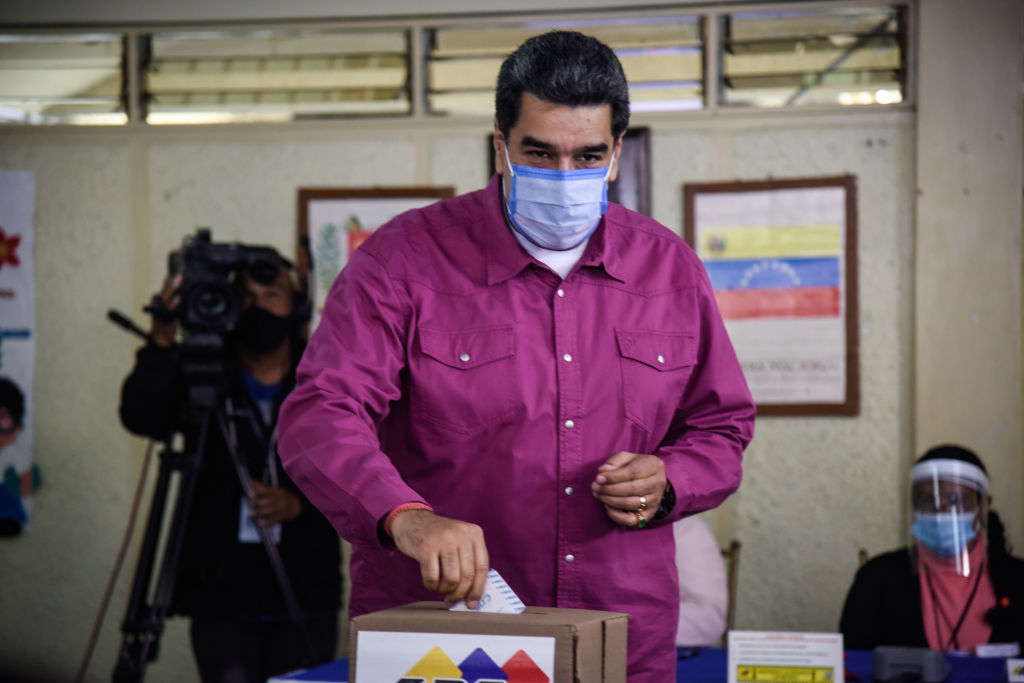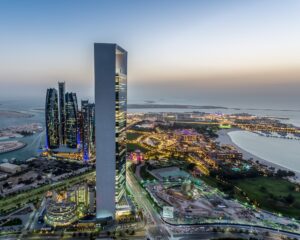
(Argus, 7.Dec.2020) — Venezuela’s National Assembly elections yesterday thrust the Opec country’s last democratic institution under the thumb of President Nicolas Maduro, who has defied US oil sanctions for close to two years.
The US-backed opposition led by Juan Guaido boycotted the elections, and abstention was estimated at around 80pc.
US secretary of state Mike Pompeo called the elections a “political farce” and said the US would continue to recognize the “legitimate” incumbent assembly and Guaido as Venezuela’s interim president.
As expected, the EU and Canada said they did not recognize the election results either but declined to mention Guaido.
“Venezuela urgently needs a political solution to end the current impasse and to allow for the delivery of the urgently required humanitarian assistance to its people,” the EU said.
However flawed the elections, Guaido’s January 2019 constitutional claim to an interim presidency — derived from his current presidency of the assembly — is now in doubt as Maduro consolidates his political control.
The incoming assembly will be sworn in for a five-year term on 5 January 2021, just over two weeks before US president-elect Joe Biden takes office, replacing Donald Trump. The Maduro government is hoping the parallel transitions will open a path for easing the sanctions, but the protracted Venezuela crisis is unlikely to figure among the Biden administration’s early priorities.
Biden’s transition office declined to comment on the developments in Caracas “out of respect for the principle that there is one (US) president at a time.” Biden, while on the campaign trail, said his administration’s goal will be to ensure a free and fair election in Venezuela to help restore democracy and rebuild the economy and criticized Maduro as a “dictator.”
But Biden also said the Trump administration’s approach to Venezuela has been unsuccessful. The incoming administration has not indicated whether it will maintain its predecessor’s recognition of Guaido.
The incoming US administration is not facing any sanctions deadlines that will force its hand quickly. A license for Chevron and US oil service providers to continue work in Venezuela expires on 3 June. The outgoing Trump administration will have to decide by 19 January whether to extend its prohibition on the takeover of PdV-owned US refiner Citgo, which the Guaido team controls. Previous licenses typically were extended for a three month period.
Official results announced after midnight by Venezuela’s electoral authority (CNE) gave 67.6pc of the assembly seats to Maduro’s Great Patriotic Pole (GPP), a paper coalition dominated by the ruling socialist party (PSUV).
The Democratic Alliance, a coalition of token opposition groups led by Progressive Alliance head Henri Falcon, garnered 17.95pc of over 5.2mn votes cast. The alliance includes breakaway factions of several opposition parties which have been co-opted by the government.
Down with sanctions
The outcome virtually guarantees legislative approval of an anti-blockade bill that would give Maduro more power to offer oil, natural gas and metals in exchange for international credit and establish new joint ventures with Venezuela’s crumbling national oil company PdV. But even with near-total control at home, it is unclear if Maduro’s international patrons, led by Russia and China, will be willing to deepen their exposure to Caracas.
Officially, more than 14,000 candidates from more than 80 political organizations were authorized by the CNE in June to stand in the elections. But most of Maduro’s prominent opponents refused to participate or have been imprisoned or forced into exile. Maduro’s regional allies, including Ecuador’s former president Rafael Correa and Bolivia’s former president Evo Morales, came to Caracas in lieu of traditional international observers.
The new assembly will consist of 277 legislators compared with 167 in Guaido’s lame duck legislature.
“The day has come to get rid of a National Assembly that promoted the plague of sanctions and suffering,” Maduro announced while mostly empty polling stations were still open.
In an effort to stay relevant and sustain international support, the Guaido-led opposition launched a popular consultation today that would reaffirm a nearly two-year-old strategy to force Maduro out of power.
“The fraud has been consummated, and it is clear that most of the Venezuelan people rejected it,” Guaido said yesterday. “This is why the regime does not dare to convene free elections, because they know they would never win.”
__________

